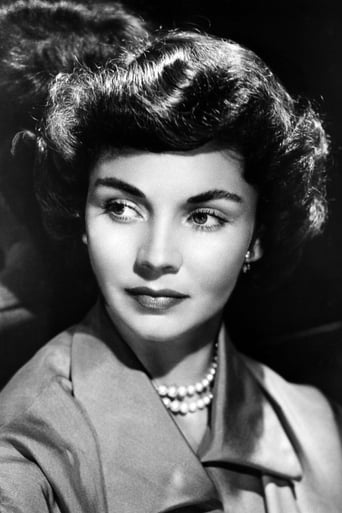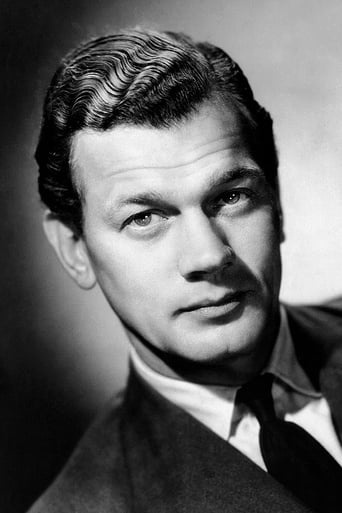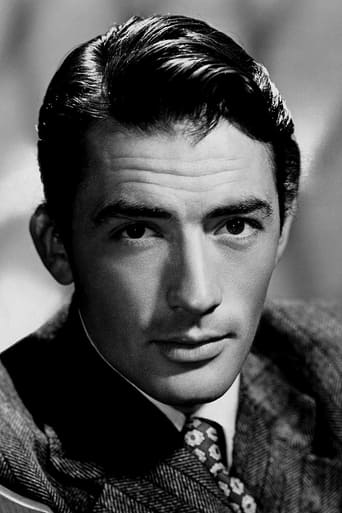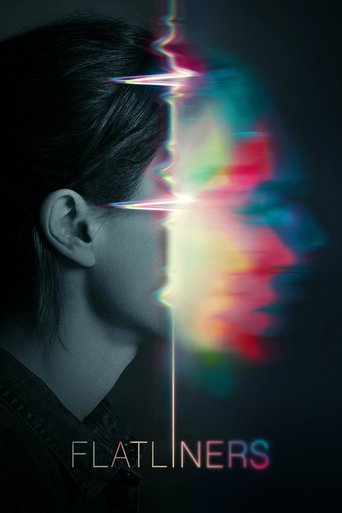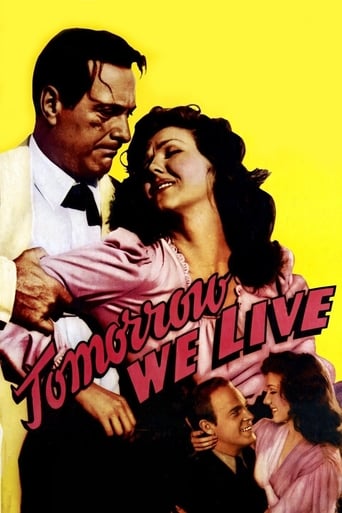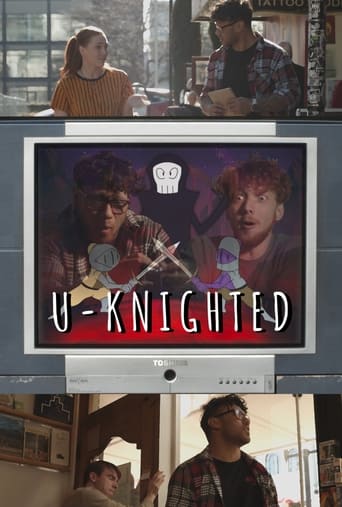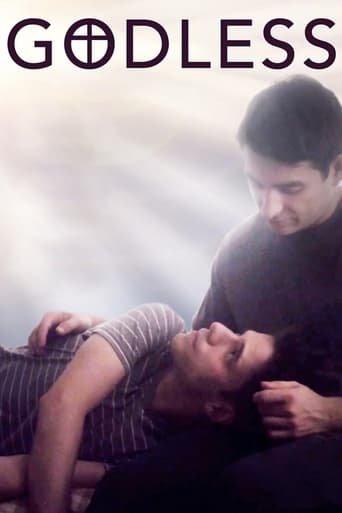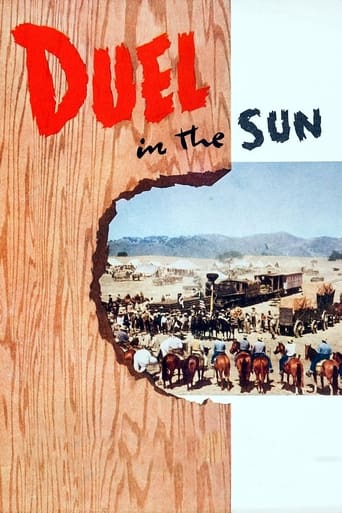
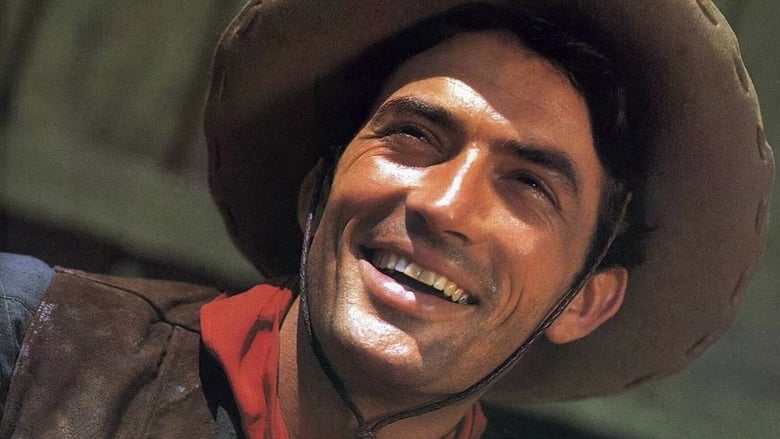
Duel in the Sun (1946)
Beautiful half-breed Pearl Chavez becomes the ward of her dead father's first love and finds herself torn between her sons, one good and the other bad.
Watch Trailer
Cast


Similar titles
Reviews
Hollywood mogul David O. Selznick's artistic follow-up of GONE WITH THE WIND, DUEL IN THE SUN is a lush western drama with King Vidor ostensibly at the helm, alas, in the wake of the creative difference between him and Selznick, the latter had to hire no less than six directors (himself included) to finish the shooting when the former reneged, so it is accountable that the final product is somewhat a curate's egg. After her her Caucasian father Scott Chavez (Marshall) is hung for killing her "trash" two-timing Indian mother (Losch), a beleaguered mestiza Pearl Chavez (Jones) enters the foster family of Laura Belle (Gish), Scott's second cousin and quondam squeeze, who has been married to Senator Jackson McCanles (Barrymore), the landowner of a vast cattle ranch called Spanish Bit, and borne him two sons, the genteel, open-minded Jesse (Cotten) and the younger, louche Lewt (Peck).Beyond any shadow of a doubt, a brotherly rivalry is fomented when there is such a nymphet in the household, to Pearl, although the two candidates' Manichaean disparity is clear as day, it is her own conflict between a tamed good girl (being educated like a lady by Jesse) and a wild bad girl (the trash like her mother, pining for Lewt's obsessive libido) that afflicts her profoundly, like her mixed parentage, these two congenital forces are constantly at loggerheads, and are not helped by Jesse's overtly lofty moral compass and Lewt's toxic masculinity and megalomania (who reckons her as his exclusive property, but cannot marry her due to her dark skin), she seesaws between them, to a point it is too bathetic and abject for one's palate, but when the crunches comes, under that broiling sun against the rugged man-face mountain, she knows the price to pay for being enamored with a hardened rascal, here is the most torrid and sensual love/hate self-destruction that takes two to tango, credits must be given to its morally incorrect dare that circumvents the Hays Code censors of its time. To today's eyes, DUEL IN THE SUN is roundly tarnished by its culturally insensitive casting, the unmasked racism (Barrymore's Senator is too intractable and bombastic to merit a feel-good reconciliation), and some wide inconsistency in the narrative (e.g. a gratuitous train wrecking scene has no import or whatsoever in the context other than to create some action and noise), but as for its visual grandeur and horseback bravado, the film is for shizzle a gas for oater-philes, not to mention a young Peck is furnished with a rare opportunity to play up his villainous side, laced with his drop dead gorgeousness and a mischievous self-consciousness, completely outstrips Joseph Cotten's meek benevolence; Jennifer Jones, under her ethnicity-altering warpaint, emulates a feral posturing to a slightly hokey impression but totally earns her stripes in the coda when all her emotions well up affectingly, mixed with dirt, tears and blood. Among its bankable supporting players, a delicately amiable Lillian Gish is vouchsafed with her one and only Oscar nomination through her extraordinary career; Lionel Barrymore has an overbearing presence too big to ignore but it is Herbert Marshall who bowls audience over with his brief but poignant appearance in the beginning, ire and contrition is alternately checked inside or oozing outside; lastly, Butterfly McQueen evokes sharp compassion as a barmy maid who can never finish her sentence more because her status doesn't deserve no one's time than her apparent prolixity. In toto, this far-off Hollywood epic is passé in its configuration and ideology, but effuses a sizable magnitude of spectacular whether to accommodate one's eyes or stir one's sentiments.
Watched for first time in 1984 on television now a widescreen DVD. Selznick produced this magnificent western about a love triangle between Jennifer Jones as Bobcat Peck as the bad guy and Cotten the good,settled in 1860 in Texas where the Senator have a large ranch who living in conflict with oldest son Jesse meanwhile prefer the young son Lewt which have your personality and ruthless,When the Wild girl called Pearl arrived in the ranch to live with the cousins after death's father she falling in love for both cousins,but Lewt is more able to get Pearl's heart. This movie is pleasant to watch because all characters are strong enough Gregory Peck in unusual role as bad guy,Jennifer Jones fantastic as wild girl,Cotten quite often as Good Guy and Barrymore as lawless Senator and Lillian Gish as mother who living trying to protect Jesse. The final is marvelous with Lewt and Pearl as the equals!!!Looking forward for DVD restoration!!
I have scanned the other reviews here of DITS and am flabbergasted as to how anyone in their right mind could vote this a "10." Although "gorgeously photographed," the best thing that can be said about this travesty is that all film students should study it to avoid its litany of mistakes. The first most obvious one is: You cannot remake "Gone With the Wind" -- which DITS producer (and screenwriter and occasional director and ultimate destroyer) David Selznick was obviously trying to do. In GWTW, Scarlett O'Hara had clear-cut goals: to get Ashley, yes, but more importantly, to survive. In DITS, poor "half-breed" Pearl (Jennifer Jones) has apparently nothing else to do but be sex bait for good brother/closeted homosexual Jesse (Joseph Cotten) and bad brother/moron POS Lewt (Gregory Peck). There is no one to root for in this movie because it is unclear what it is about. Is it about the sad life of Pearl, who has no one in her corner, except possibly Laura Belle (Lillian Gish), mother of Jesse and Lewt, and wife of the Senator (Lionel Barrymore)? Is it about the railways making progress across the United States and encroaching upon the self-made kingdom of the Senator? Is it about Jesse and Lewt as Cain and Abel? Is it a comedy with laughs provided by poor Butterfly McQueen as "Vashti" (and why on God's earth did they name her that?! Research it!!), who is phoning in her performance from GWTW? I didn't care about anyone for one second... except I did feel bad for Jennifer Jones. It is clear she was a very attractive woman. Why they felt compelled to cast her as a "half-breed," I don't know. In order to achieve her "look" they had to bathe in her a sort of cocoa powder and constantly light her to make her look like Lupe Velez after a harsh day in the sun. She was obviously directed to lower her voice and have an inner struggle of wanting to please any man who looked at her twice and to hold on to her virginity. But throughout the story, I kept asking myself: What does this woman do? What did she do before she arrived at the Senator's home, what did she do while she was there, and what could she possibly have hoped to have done if she left? Many reviews focus on her "awful" performance. But my take is: She was doing her job. She was treated like "trash" for the entire film, and, in this way, I felt for her. She also kept referring to herself as "trash" -- but... based on what? The idea that she "succumbed" to POS Lewt? Lewt -- what a fine character he was! He would kill anyone he wanted (Charles Bickford, the only person in the film who seemed to have any morals), and blow up trains in some sort of deluded dream that he was going to please his father. He had absolutely no redeeming qualities. He was NOT Rhett Butler, who may have been a gambler, but he was a man with feelings and some level of intelligence. We can see why Scarlett may have ultimately fallen for him. But for Pearl to "give in" to Lewt... it was all so pathetically sad and insulting and degrading. This movie made it crystal clear that women were either mothers (Lillian Gish), virgins (Joan Tetzel), slaves (Butterfly McQueen) or whores (Jennifer Jones). It was a man's world and women were just expected to figure it out on their own. It is really hard to watch this in 2017, for the above reasons, and also because this film is a big, meandering mess. Who cares about the cinematography when everything else is incomprehensible? Also, apparently Selznick argued with composer Dimitri Tiomkin that he wanted "real music"; no, what he wanted was the score to "GWTW" -- and, not to demean Mr. Tiomkin, his score is completely unmemorable, no doubt because he was trying to please Selznick. Finally, since it is impossible to believe for a nanosecond that Pearl could have ever possibly loved Lewt, the entire ending is ludicrous. Some people are lucky to strike gold ONCE; that's what Selznick did with GWTW. He was unable to come close with DITS (which perhaps should be known as DITZ), and was never able to again. All in all, an absolute mistake.
This is a rather unusual Western. It has one of the most excruciatingly ignorant main characters I've ever seen in a movie. I know that the idea is that she hasn't had much education but I don't understand how anyone her age could possibly be as stupid as she is, especially given her close relationship with her supposedly well-educated father. The other interesting thing about the film is that it portrays the traditional masculine cowboy in a negative light, instead favoring this character's non-violent intellectual brother.So at first I was annoyed by how stupid Pearl is but eventually I started to understand where they were taking this idea. We're meant to see her develop from a typically weak and powerless female living in a pre-feminist society to an empowered but conflicted heroine. I still think that exaggerating her ignorance to such a degree was a big mistake on the part of the filmmakers and actually even her development feels like what it is, a contrivance of the plot to lead to a climactic showdown.Lewton McCanles fits into the typical hard-riding alpha male archetype that's so familiar from countless other Westerns. Instead of possessing a rough hewn morality, though, he's really a terrible person who seems to delight in causing trouble for others. The real problem with this character is that he has no nuance, he's very predictable and uninspired. His brother also falls into an unsurprising pattern fairly quickly but his role as the one truly admirable character is surprising given his lack of willingness to do whatever it takes to beat the villain. This is where the snubbed heroine's interesting side comes in as she eventually seems to realize that she has to put a stop to the villain's reign of terror before he makes things even worse than they already are.What I really liked about this film was the sense of the inescapability of the past of the characters. Mrs. McCanles's choice of husband pretty much destroys her life and her unresolved feelings for another man sow the destruction of her family both from the conflict within the nuclear family itself and without from her other suitor's daughter. This film is nearly as epic as the oddly long prelude leads you to expect it to be.


